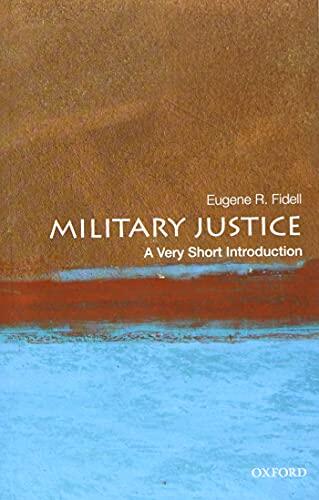
Military Justice: A Very Short Introduction
بواسطة
Eugene R. Fidell
لا توجد تقييمات بعد
Science & Technology
تنسيق
غلاف ورقي
صفحات
160
لغة
الإنجليزية
منشور
Oct 3, 2016
الناشر
Oxford University Press
الطبعة
Reprint
رقم ISBN-10
0199303495
رقم ISBN-13
9780199303496
الوصف
Military justice encompasses a unique legal framework that governs the armed forces, shaped by its distinct traditions and the necessity of maintaining order and discipline among service members. The book delves into the characteristics of military law, examining how it differs from civilian legal systems. The author, with an expert eye, navigates through the complex interplay of justice, command authority, and the rights of military personnel.
Throughout the exploration, readers are offered an insightful analysis of the effectiveness of military justice in upholding accountability within the ranks. Challenges such as transparency, fairness, and the protection of service members' rights are thoughtfully considered, providing a balanced view of the system’s strengths and shortcomings. Fidell’s approachable writing style makes these intricate topics accessible to a wide audience, encouraging a deeper understanding of the implications for those serving in the military.
Ultimately, this examination of military justice serves as a vital resource for anyone interested in the legal dimensions of military life, from scholars to service members themselves. By addressing the nuances and operational realities of military law, it invites reflection on how best to serve justice in an environment where the stakes are particularly high.
Throughout the exploration, readers are offered an insightful analysis of the effectiveness of military justice in upholding accountability within the ranks. Challenges such as transparency, fairness, and the protection of service members' rights are thoughtfully considered, providing a balanced view of the system’s strengths and shortcomings. Fidell’s approachable writing style makes these intricate topics accessible to a wide audience, encouraging a deeper understanding of the implications for those serving in the military.
Ultimately, this examination of military justice serves as a vital resource for anyone interested in the legal dimensions of military life, from scholars to service members themselves. By addressing the nuances and operational realities of military law, it invites reflection on how best to serve justice in an environment where the stakes are particularly high.